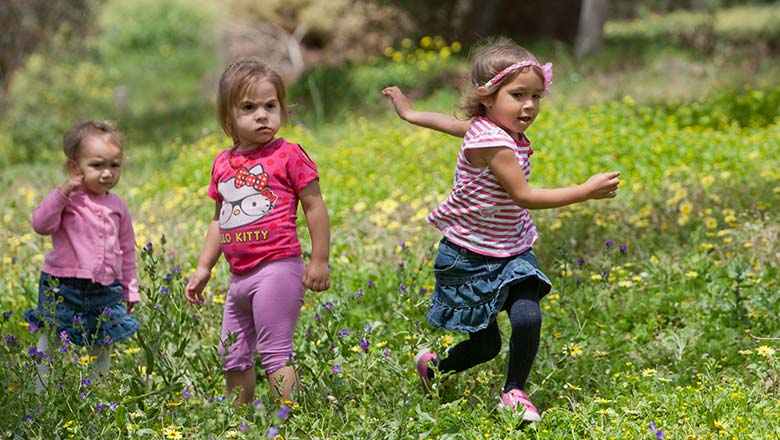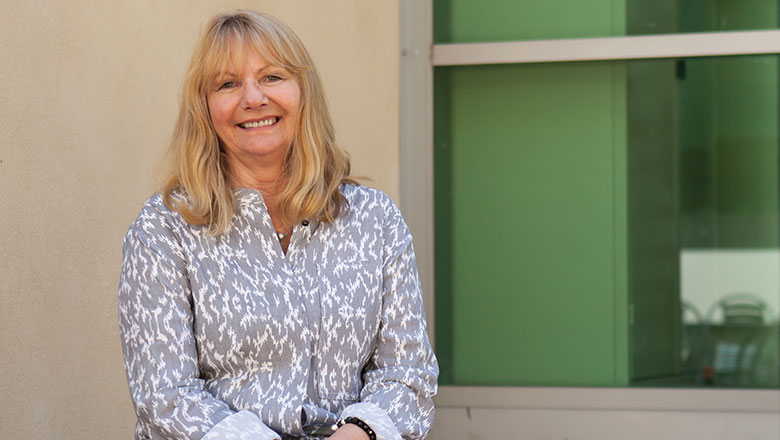Great gains have been recorded in the Pilbara where the nurturing of local children has been made a community-wide priority.
A decade of hard work, guided by The Kids Research Institute Australia, has resulted in measurable improvements in the emotional, intellectual, physical and social development of Aboriginal children at the start of school.
And a significant positive shift has been detected in the number now showing multiple ready-forschool strengths. These strengths include selfregulation, high pro-social and communication skills and respectful behaviour towards peers, teachers and property, and curiosity about the world.
Revealed by a fine-tuning and re-focusing of early childhood development data to show strengths along with vulnerabilities, it has brought good news and renewed determination to Aboriginal communities.

The gains in both town and remote communities, recorded between 2007 and 2012, have increased local confidence in the ability to “make a difference” and confirmed the “critical importance” of research and industry partnerships, said lead researcher Associate Professor Roz Walker of The Kids Research Institute Australia.
The significant progress in improving early years outcomes was aided by BHP Billiton funding the 2007 ‘Staying on Track’ project and the 2010 joint partnership between The Kids Research Institute Australia, BHP Billiton and World Vision Australia to make early investments to improve maternal and child health and increase opportunities and experiences for children in East Pilbara communities.
The ability to measure these changes over time and to measure strengths within the developmental domains has taken much effort from Institute researchers, with implementation and translation led by Associate Professor Walker and data moderation and analysis led by Dr Sally Brinkman’s team at the Fraser Mustard Centre in Adelaide.
It has involved reviewing and comparing earlier regional research - Starting on Track which involved implementing the Australian Early Development Index (AEDI) survey across the Pilbara in 2007 and the Indigenous Adaptation of the AEDI in 2008 – and developing reliable mechanisms to allow comparison with the ongoing national census – the Australian Early Development Census (AEDC).
As early as 2002, The Kids Research Institute Australia played a crucial role in validating the AEDI and then later making it culturally relevant to the needs of Aboriginal children and their influences on development.
To then enable a focus on strengths, the Institute went on to establish the Multiple Strength Index. This index is based on 39 ready-for-school strengths identified from among the 100 measures on the existing AEDC data collection checklist. The checklist is used to map areas where children may or may not be meeting ready-for-school requirements in physical health and wellbeing; social competence; emotional maturity; language and cognitive skills; communication skills and general knowledge.
For East Pilbara Aboriginal children, an analysis of results then revealed the good news that in 2012, 58 per cent of those starting school had a high level of strengths, compared to only 27 per cent in 2007. Also there had been statistically significant improvements across all developmental domains.
 Associate Professor Roz Walker
Associate Professor Roz Walker
“These strengths were there, but they were not being highlighted,” said Associate Professor Walker.
“Now we are more aware of them, we can build on them with the parents and the schools.
“We are now able to show the benefits of using this information, collected at the local level, to work with groups as a catalyst for change.”
Significant progress to date was due to the whole community coming together and combining efforts, says Associate Professor Walker.
“We can’t say it was one particular program and we can’t say it was one particular school or strategy,” she said.
“What it was, I believe, is that we were able to harness community-wide mobilisation and an increased understanding of the importance of the early years.
“This has resulted in a real focus on ‘mums and bubs’ groups, developed by World Vision Australia and the YMCA, going out to remote places like Jigalong and working with the local mums and teachers and getting play equipment out to where there has never been play equipment before.
“It is hard for many people to understand how a $5,000 grant for play equipment or a food bank program can significantly change young children’s lives; let alone begin to measure their long term benefits.”
